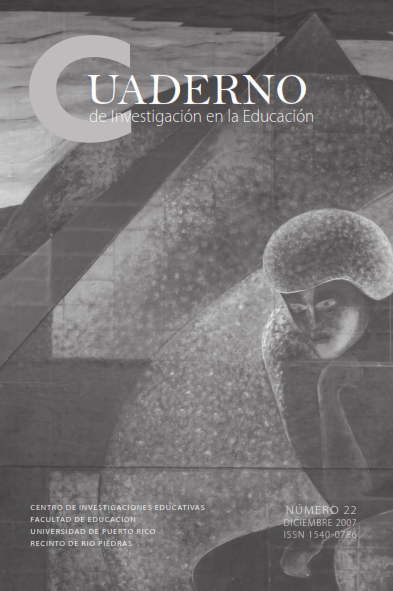Abstract
This paper explores the conceptualization of scientific literacy by participants of the Teaching Practice Program of the University of Puerto Rico, to compare it to and contrast it with the definition of scientific literacy adopted by the Department of Education of Puerto Rico in terms of coincidences, discrepancies, and erroneous concepts. Among the similarities, the participants defined science form a personal and social perspective, as well as their knowledge of it. In terms of discrepancies, the participants stress the importance of inquiring, as well as the values and nature of science as elements of scientific literacy. The erroneous concepts detected were: the experimental evidence is the only means to reach knowledge, the scientific method by itself discovers the truths of science, and technology can solve any problem. The method of increasing scientific literacy among their students is by using examples taken from day to day experiences.
How to cite:
Salgado-Herrera, M. (2007). Conceptuación de cultura científica en participantes de un programa de Práctica Docente. Cuaderno de Investigación en la Educación, 22, 67-76. Retrieved from https://revistas.upr.edu/index.php/educacion/article/view/13267
The contents published in the Puerto Rico Journal of Education is freely distributed under open access practices, in accordance with the Creative Commons license, Attribution-NonCommercial 4.0 International (CC BY-NC 4.0). Through these principles, the journal and its authors allow readers to access, reproduce and share articles in full text. Users should give credit to authors in a reasonable way without suggesting they have their support. Under no circumstances, readers may make use of the contents for commercial purposes. The authors retain copyright on their works.

